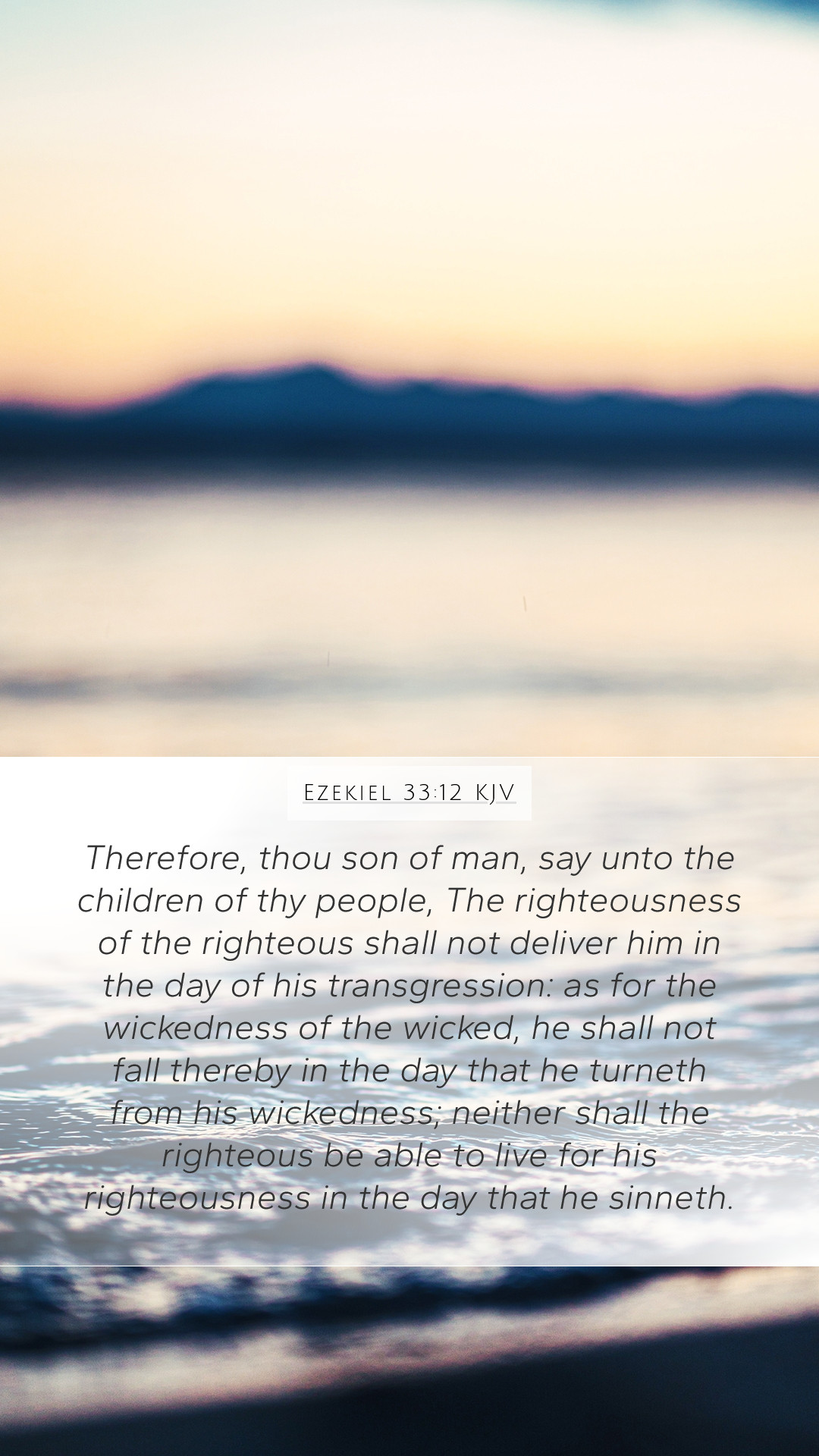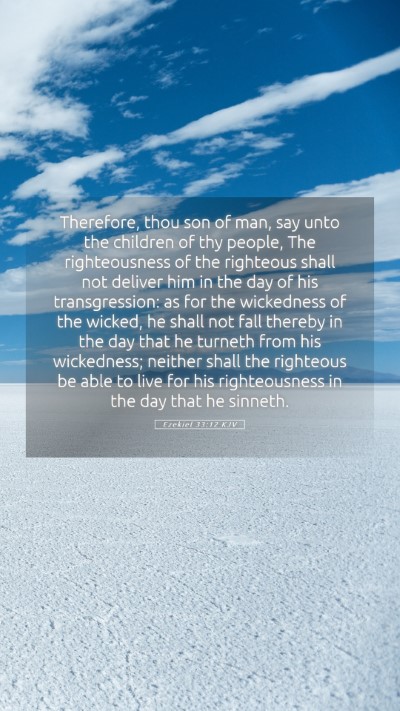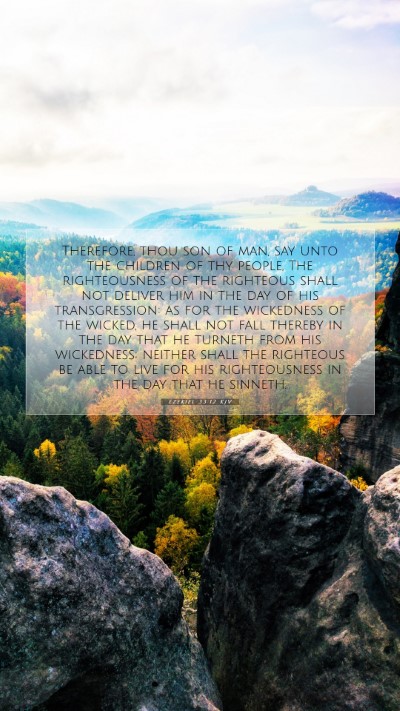Ezekiel 33:12 - Bible Verse Meaning and Commentary
The verse Ezekiel 33:12 reads: "Therefore you, O son of man, say to the children of your people: 'The righteousness of the righteous man shall not deliver him in the day of his transgression; as for the wickedness of the wicked, he shall not fall because of it in the day that he turns from his wickedness; nor shall the righteous be able to live because of his righteousness in the day that he sins.'" This verse serves as a crucial reminder of individual responsibility and the conditional nature of righteousness.
Summary and Insights from Commentaries
In analyzing Ezekiel 33:12, it is essential to explore various biblical commentaries to gather a comprehensive understanding of this scripture. Here are the insights drawn from renowned public domain commentators:
Matthew Henry’s Commentary
Matthew Henry emphasizes that this verse reflects God's justice and the necessity of personal accountability. He explains that the righteousness of an individual does not serve as a credit when they commit sin; instead, each person's moral standing is evaluated based on their actions at the moment. This signals the importance of continual faithfulness and repentance, as one’s previous righteousness does not cover present iniquity.
Albert Barnes’ Notes on the Bible
Albert Barnes provides further insight by noting that the emphasis is on the transitory nature of righteousness and wickedness. He points out that just because a man has been righteous does not mean he is immune from judgment if he turns away from that righteousness. Conversely, if a wicked person ceases their wrongdoing and turns to righteousness, they will not be judged for their past. This reinforces the theme of hope and redemption, highlighting God's readiness to forgive.
Adam Clarke’s Commentary
Adam Clarke elaborates on the conditional aspect of divine justice depicted in this verse. He articulates the idea that the divine judgment is based on present actions rather than past deeds. Clarke encourages readers to understand that righteousness must be maintained consistently, and one should not become complacent based on previous good works. This teaches believers about the need for continuous vigilance in their spiritual lives.
Broader Application and Understanding
Combining these insights, we find that Ezekiel 33:12 delivers profound religious and moral implications. Believers are called to a life of constant vigilance, recognizing that their actions today can impact their standing before God. Here are key takeaways from the combined commentary insights:
- Personal Accountability: Each individual is responsible for their own behavior, which means the past does not guarantee a favorable judgment in the future.
- Hope for Repentance: No one is beyond redemption; a change of heart and actions can lead to forgiveness.
- Consistency in Righteousness: Righteousness must be actively pursued and cannot be taken for granted.
Cross-References
This verse relates to several other passages that echo similar themes:
- Romans 14:12: "So then each of us will give an account of himself to God."
- Ezekiel 18:30: "Therefore I will judge you, O house of Israel, every one according to his ways, says the Lord God. Repent, and turn from all your offenses, so sin will not be your downfall."
- James 4:17: "Anyone, then, who knows the good he ought to do and doesn't do it, sins."
Understanding Scripture Context
The context of Ezekiel 33 is pivotal in grasping its message. Ezekiel, positioned as a watchman, bears the responsibility of warning the people of Israel regarding their sinful ways while calling them to righteousness. In this chapter, God’s message stresses that they must turn from sin and pursue a righteous life for their salvation. Understanding the larger narrative of accountability reveals the heart of this verse.
Applying the Verse to Daily Life
As modern readers engage with Ezekiel 33:12, it prompts a crucial reflection on personal life choices:
- Reflect on Actions: Consider how one’s current actions align with their professed beliefs and values.
- Seek Forgiveness: Understand that turning away from sin is a step toward reconciliation with God.
- Encourage Accountability: Create a supportive community that encourages each other in maintaining righteousness.
Conclusion
This commentary on Ezekiel 33:12 serves as a robust exploration of righteousness, sin, and accountability. By understanding that righteousness must be an ongoing endeavor, individuals can enrich their spiritual journeys and engage more meaningfully in their faith communities. As you study this verse further, consider how it challenges you and others in your Bible study groups, online discussions, and personal reflections.
Further Study Resources
To deepen your understanding of this scripture, consider utilizing various Bible study tools, resources, and guides. Engage in Bible study lessons and explore topics related to personal accountability in faith for a fuller grasp of how to apply Scripture effectively in daily life.


